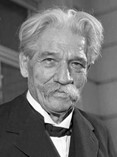Shakespeare on leadership traits
By Louise Wallace-Richards, Acting Deputy Principal, Head of Secondary School

Over the years, I have reviewed many Radford Senior Drama performances in the College Bulletin, and I have always been able to provide high praise for the quality of the acting, direction, and technical production. This year’s offering was William Shakespeare’s Macbeth,
directed by Head of English and Acting Assistant Principal Teacher Development, Jason Golding. It provided an evening of entertainment for the audience equal to that of past performances including Arthur Miller’s The Crucible, William Golding’s Lord of the Flies and David Williamson’s satire Dead White Males, just to name three that I have enjoyed over the past decade and a half. One of the highlights of this year’s production was the use of lighting to assist in focusing the audience on the throne in the centre of the stage, a key prop enabling the audience to understand the focus of the play on the quality of a good leader. Well-chosen pieces of music further served to emphasise the consequences of leadership that is motivated by ambition and is purely self-serving and destructive.
Shakespeare enables the audience to hear, through the character of Malcolm, the legitimate heir to the throne, what he believes are the qualities of a good leader. Malcolm states there to the hero of the play, Macduff, that he possesses the “king-becoming graces”, (read leadership qualities) of:
justice, verity, temperance, stableness,
Bounty, perseverance, mercy, lowliness,
Devotion, patience, courage, fortitude…
(Act 4 Scene 3, Lines 91 – 94).
Though written 500 years ago, this is not a bad list of leadership qualities for all of us to look to possess and develop. For me, it is this theme of the play that keeps it fresh and relevant for a Radford audience, and not just because I am an English teacher! The only thing perhaps to pick Shakespeare up on is the ability of a leader to be all of these things to all people. We don’t get to see Malcolm as King of England and Scotland, and certainly the historical figure he is based on, James I, was a flawed man, as are many leaders that we admire. It is sometimes because they are not perfect that we admire them, they seem more human to us.

Albert Schweitzer, centuries after Shakespeare, simply said that “Example is leadership”. Schweitzer won the 1952 Nobel Peace Prize for his philosophy of “reverence for life” and his tireless humanitarian work. (Source)
Malcolm in Macbeth believed his right to rule came from God, and may well have ruled with little attention to the concerns of his subjects. Schweitzer’s “leading through example”, however, resonates with the statements many of our Year 11 students made (during the recent process to elect student leaders for 2023) about what they believed they could contribute as leaders of our College. The Secondary School leadership team was impressed by the willingness of so many of our senior students to serve the student body, by listening to them, as well by accepting the challenge of leading by example, and promoting and upholding the College’s values of Truth, Compassion, Wisdom.
At the end of Term 3, the 2023 Captains, Vice Captains and Prefects were announced to the College community through our fortnightly Assembly and the Week 9 Bulletin. Last week at the Secondary School Assembly, the 2023 Activity Captains and Year 7 Mentors were also announced. Of all the leader traits Malcolm in Macbeth mentioned, I am certain that “lowliness” is high on the list of our 2023 student leaders. Given the Oxford English Dictionary defines lowly as meaning humble in feeling, our 2023 elected student leaders know that it is an honour to be chosen by their peers and teachers to serve their College, and that the task ahead of them is to work with their 2023 Year 12 peers, to lead the Secondary School.
The coming 2023 academic year will provide all Year 12 students with the chance to lead themselves and others with the respect, patience, courage, and fairness that Shakespeare identified as the traits of good leaders, all those years ago, in Macbeth, traits which were witnessed by those lucky enough to view the Radford production of the Bard’s most perfect tragedy.
